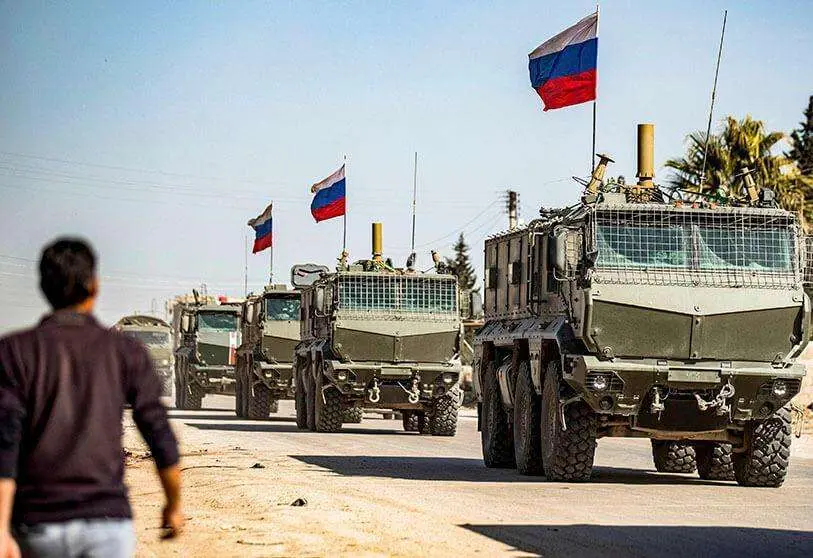In search of a new balance of power in the Middle East

"The astonishingly poor performance of the Russian army and its weapons systems in Ukraine is having repercussions throughout the Middle East, the consequence of which is an attempt to find a new balance of power in the region". This is what Arabic-speaking Israeli expert Ehud Yaari told us in a telematic meeting with several European journalists, convened through the Europe-Israel Press Association (EIPA).
A member of the Washington Institute, author of numerous books and articles and one of the most renowned analysts on Israel's Channel 12, Ehud Yaari answers concisely and forcefully to more than thirty questions about the war unleashed by Russian President Vladimir Putin in Ukraine. Here is a summary of his answers:
- "While many of the Arab states have been reluctant to openly denounce the invasion of Ukraine, virtually the entire Middle East region has doubts about Russia. Their prestige has suffered a huge blow, which I don't think they will recover'.
- "Russia has tested no less than 320 new weapons systems in Syria, including its new battle tank, its best helicopters and cruise missiles, which they fired from the Caspian Sea... People in the region believe that Syria was very easy for them in relative terms, because the Russian army was not really confronted by any major adversary. They were only opposed by different kinds of rebel militias, which don't have heavy weapons. The Russians are very probably paying a very high price in Ukraine now for relying on the so-called military lessons learned in Syria."
- "There is conviction in Arab countries that the Russians are also paying for the excesses they committed in Syria, to the point that they are distancing themselves from Putin, even if they dare not take a clear, pro-Western position."
- "One of the immediate impacts of the war in Ukraine is the stalling of the nuclear negotiations in Vienna. The Russians have told the Americans: if you want that deal we have our own price: we want Russatom to be able to complete a $10 billion reactor project with Iran. And we also want to be able to sell missiles to Iran, in accordance with the original JCPOA. But, at the same time, there is a strong debate in Tehran, where there is a strong division between the radicals, the hardliners, who support Russia, and those who are labelled "reformists", who express increasingly vehement criticism of Moscow. I think the conclusion of all this is that both in Iran and in the Arab countries, doubts about Russia's reliability will grow".
With respect to Turkey, the only country in the region that is a majority Muslim NATO member, Ehud Yaari notes that competition and rivalry with Iran, the two Muslim but non-Arab powers in the region, is growing.
- "This rivalry is manifesting itself on many fronts, from the southern Caucasus to northwestern Iraq, Syria and Lebanon, which will hold general elections in May. In Lebanon, the Turks are trying to help the Sunnis regroup for the elections, while Iran and Hezbollah are trying to take advantage of the Sunni political implosion. If the Europeans do not intervene in Lebanon, Hezbollah could gain a majority in the Lebanese parliament, which would mean a new Lebanon controlled entirely by Iran".
- "Yes, it is true that there is growing tension between Turkish President Recep Tayyip Erdogan and the Russians over Ukraine, which has prompted the former to seek new partnerships and cooperation schemes, ironing out old quarrels, including with Israel. In this regard, Erdogan, following the terrorist attacks in several Israeli cities, has issued a strong condemnation. He did so while still hosting Hamas leaders and operational headquarters in Istanbul. At the same time, it is trying to mend relations with Egypt; it has already done so with the United Arab Emirates (UAE) and has also made huge concessions to the Saudis, agreeing to move the trial of the suspects in the murder of Jamal Khashoggi to Saudi Arabia."

- "A new balance of power is emerging. There are many leaders who are aware of Russia's relative weakness, who have also been impressed by the way the US is handling the Ukraine crisis and the effectiveness of the sanctions system. Perhaps it is because the US has not yet withdrawn from the Middle East and Europe as some have taken for granted”.
- "There are two pillars of this emerging new system of balances, both based in Cairo. The first is the East Med organisation, comprising Israel, the Palestinian Authority, Egypt, Cyprus, Greece, Italy and the US, which has already acquired a military dimension with the first joint exercises. The second pillar is the Saudi-initiated Red Sea Council, which is also acquiring a corresponding military dimension. Israel and the US are not yet part of it, but I believe it will not be long before there will be a signal for them to join".

The dialogue obviously could not miss the role that China can play in this rebalancing of power in the Middle East. Ehud Yaari believes that China will not come to the region with intentions other than to be a powerful and preferential trading and investment partner. "But when countries like the UAE have to decide on the procurement of major weapons systems, I am sure they will take a look at what the Chinese can offer, especially when it comes to fifth-generation fighter aircraft. He leaves it in the air that, if a major arms deal is then consummated, China will be perceived differently.

